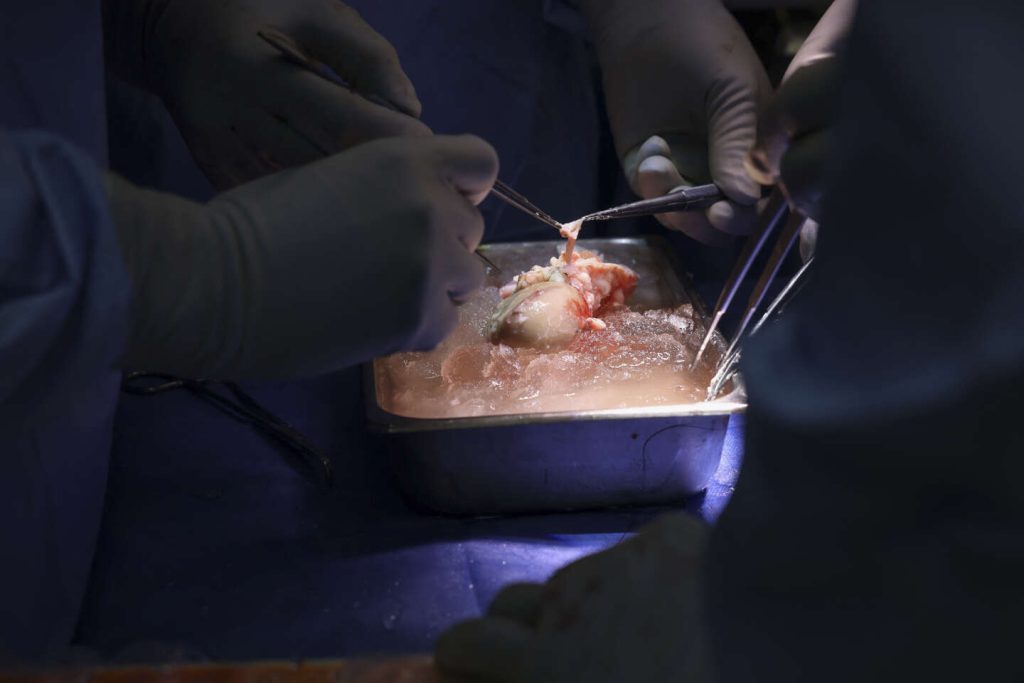Sur March 16, 2024, surgeons at the Massachusetts General Hospital in Boston prepared to perform the world’s first living pig-to-human kidney transplant. However, the recipient of this groundbreaking surgery, a man named Rick Slayman, tragically passed away on May 12, as announced by the hospital. Despite the sudden death, there is no indication that it was directly related to the transplantation procedure. Slayman, a 62-year-old man suffering from end-stage kidney disease, had been hailed as a beacon of hope for countless patients worldwide who are awaiting organ transplants.
Prior to receiving the genetically modified pig kidney, Slayman had undergone a human kidney transplant in 2018 due to complications from Type 2 diabetes and hypertension. However, the transplanted kidney began to fail after five years, leading Slayman to undergo dialysis treatment. The shortage of available organs for transplantation is a chronic issue globally, with over 1,400 patients on the waiting list for a kidney transplant at the Massachusetts General Hospital alone. The use of genetically modified pig organs holds promise for addressing this shortage and potentially saving more lives in need of transplants.
The pig kidney used in the groundbreaking procedure was provided by a biotechnology company based in Massachusetts called “eGenesis.” This organ had been genetically modified to remove harmful genes and incorporate certain human genes, making it more compatible for transplantation into a human recipient. The successful completion of this procedure marked a significant advancement in the field of xenotransplantation, raising hopes for the future of organ transplantation and potentially revolutionizing the way patients in need of transplants are treated.
Despite the tragic outcome for Rick Slayman, the Massachusetts General Hospital expressed gratitude for his willingness to participate in this pioneering procedure and his role in advancing the field of xenotransplantation. The hospital recognized the importance of Slayman’s contribution in serving as a source of inspiration for patients worldwide awaiting organ transplants. While his passing is a somber reminder of the risks associated with such innovative medical procedures, it also highlights the urgent need for continued research and development in the field of organ transplantation to address the growing demand for available organs and improve patient outcomes.
Going forward, medical professionals and researchers in the field of xenotransplantation will continue to explore the possibilities and challenges associated with using genetically modified pig organs for human transplantation. The advancements made in this area offer hope for patients facing organ failure and limited options for treatment. With further research and clinical trials, the potential for successful organ transplants using genetically modified pig organs may become a reality, offering new hope for patients suffering from end-stage organ disease and contributing to the ongoing evolution of medical science. Despite the setbacks experienced in this particular case, the pursuit of innovative solutions in transplantation continues to drive progress in the field of medicine and improve patient care.















